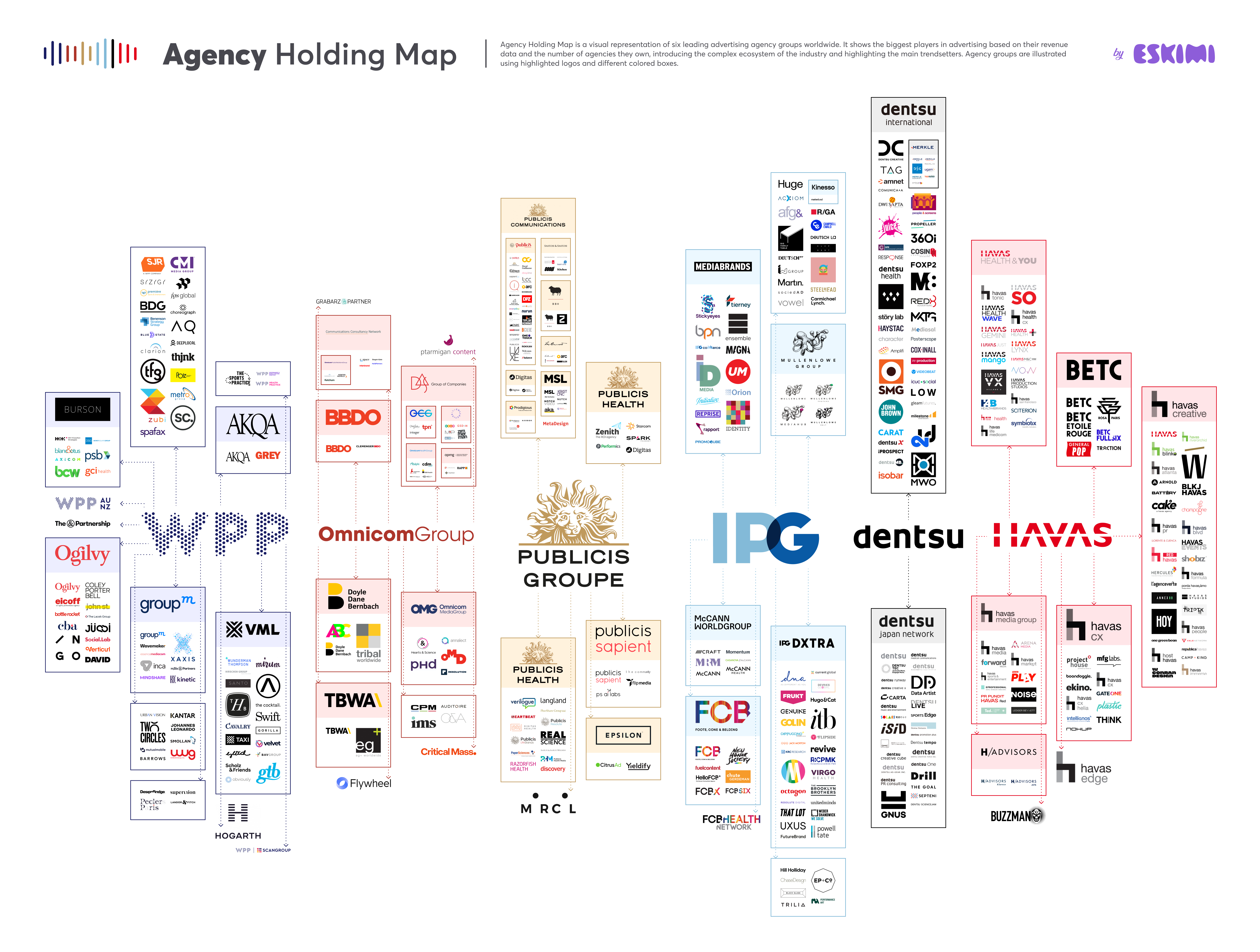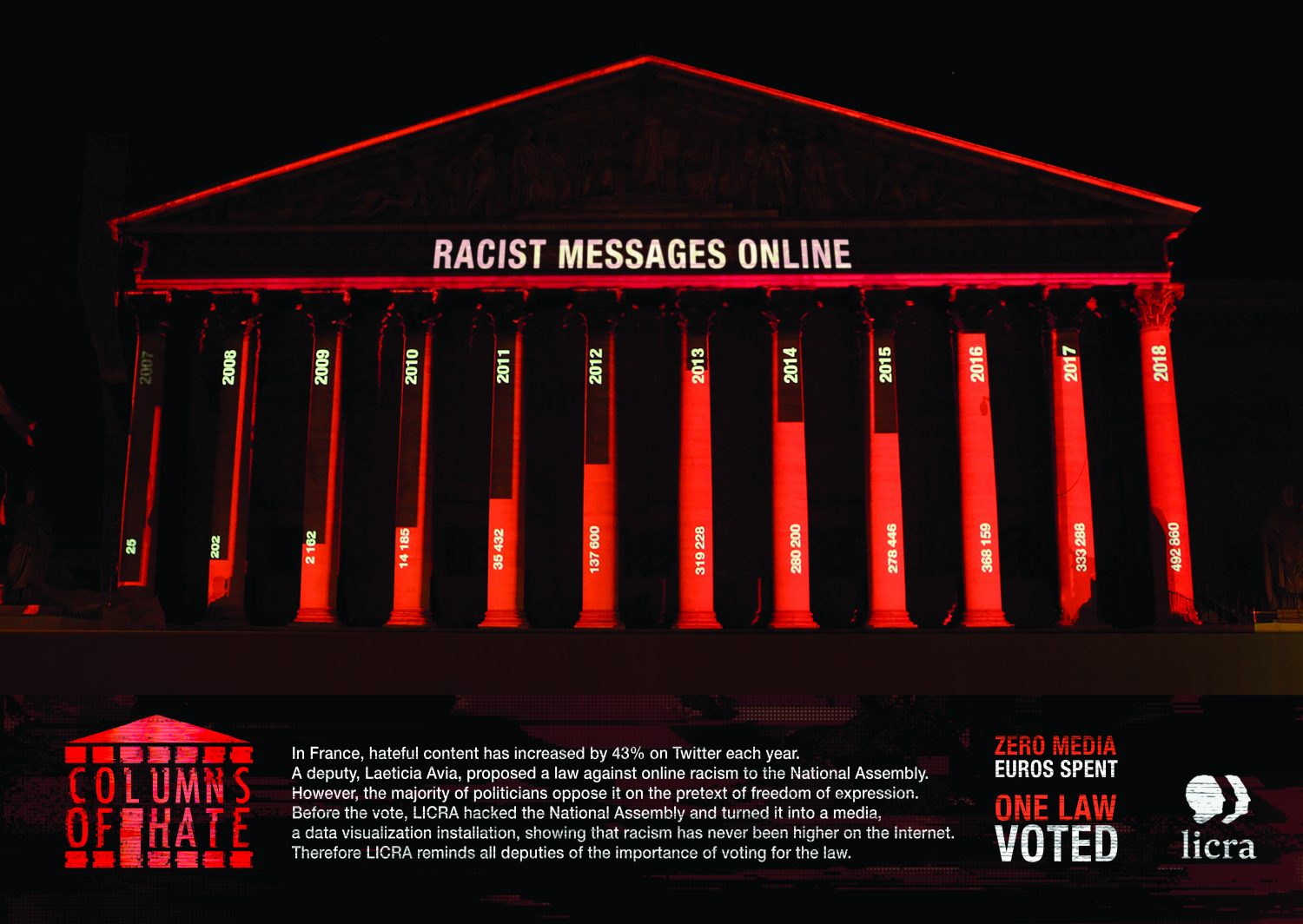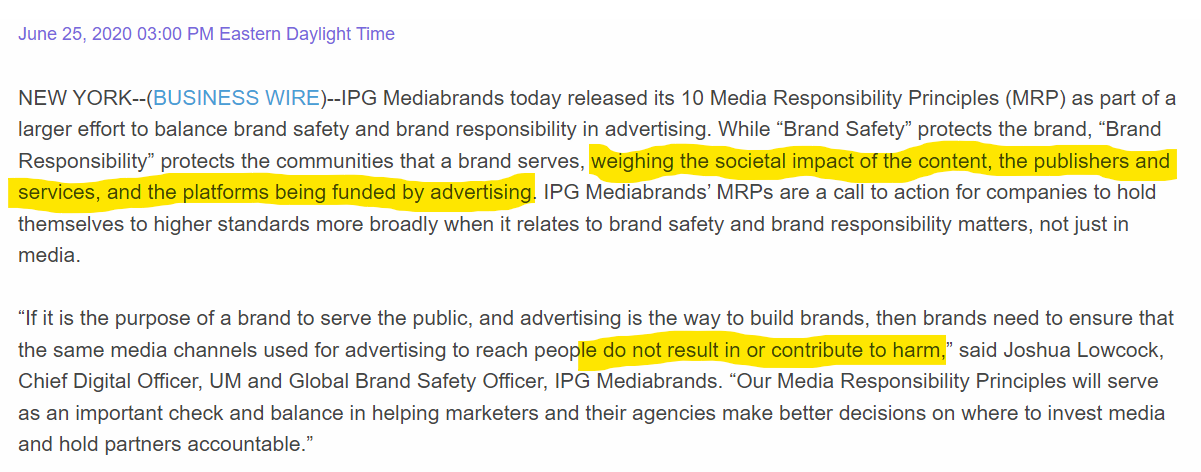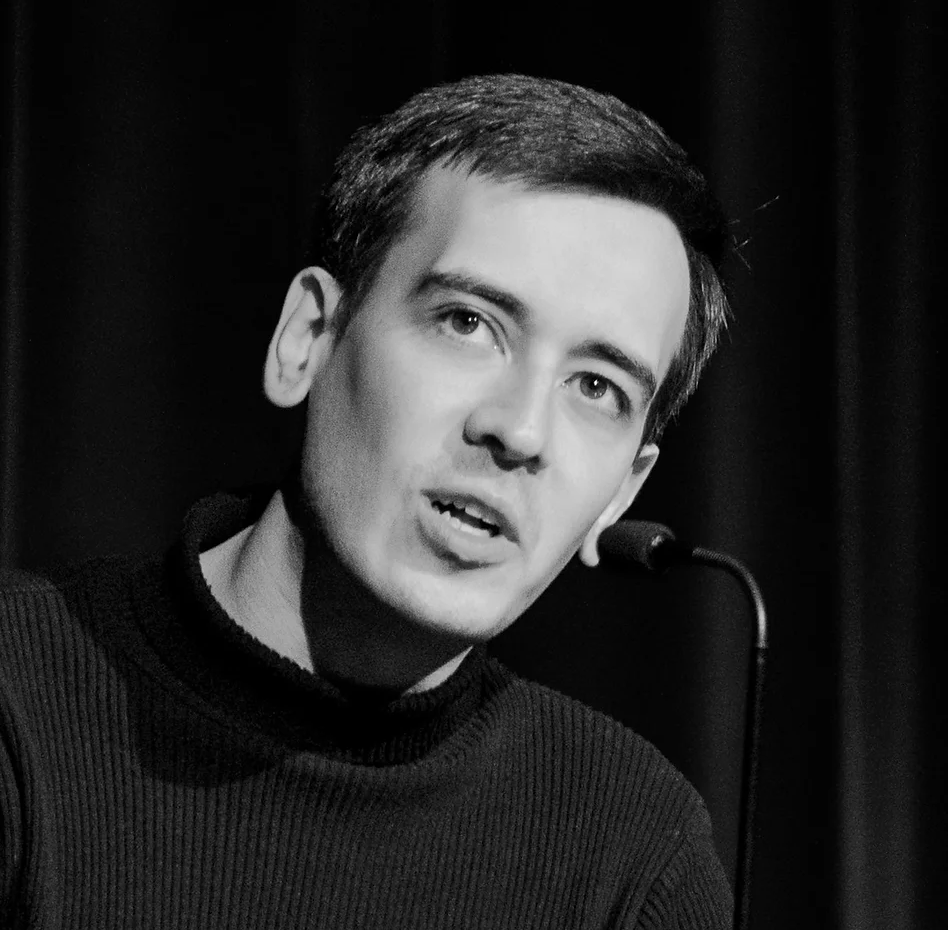The federal government is sending billions of dollars of U.S. taxpayer money to four of the big six global advertising agencies, which include some of the leading architects of online censorship.
These multinational corporations have spent much of the last decade demanding online censorship of “hate speech,” “disinformation,” and “harmful content” on social media platforms, all while being paid by U.S. taxpayers, who overwhelmingly support free speech.
Since 2019, the industry has sought to pressure social media companies through the Global Alliance for Responsible Media (GARM), a project of the World Federation of Advertisers (WFA), a body that account for roughly 90 percent of all ad spending worldwide.
As demonstrated in a recent report by the House Judiciary Committee, GARM exerted pressure against platforms that host controversial or disfavored speech, using its influence over the internet’s revenue streams to push for stricter censorship standards.
The report revealed a number of incidents of GARM’s relentless drive to punish any site or platform that deviated from “brand safe” speech:
- The Twitter/X boycott: after a collective boycott of X due to Elon Musk’s relaxation content moderation regime, GARM members bragged “taking on Elon Musk” and taking X “80 percent below revenue forecasts.”
- Threatening Spotify: members of GARM’s steer team placed sustained pressure on Spotify over its support for Joe Rogan, then the world’s number-one podcast host, for hosting guests skeptical of official COVID-19 policies. Members of GARM’s steer team also advised Coca-cola, a major global brand, that Rogan and Spotify were a “major area of concern.”
- Blacklisting non-establishment media: GARM members “closely watched” disfavored news outlets to find a pretext for withdrawing ad dollars, with Breitbart News and The Daily Wire specifically named. GARM also collaborated with NewsGuard, a private company, and the Global Disinformation Index (GDI), a British nonprofit. The primary purpose of both these organizations is to build blacklists of disfavored news sources.
The advertising industry is heavily concentrated around the “big six” global ad agency holding companies, pictured below. These holding companies own virtually every major ad agency around the world.
Every single holding company pictured below is a member of GARM, and most have engaged in independent initiatives that undermine free speech, as this article will lay out.

Agency Holding Companies, a visual mapping – ESKIMI
A review of federal contract data by the Foundation for Freedom Online reveals that four out of six of these agencies – IPG, Omnicom, WPP and Publicis Groupe – have collectively received billions of dollars in obligated funds from U.S. taxpayers through massive federal contracts.
- Publicis Groupe subsidiary Plowshare Group LLC holds a $394.2 million contract with the department of Health and Human Services (HHS), for the CDC’s national tobacco education campaign. $201.8 million of the obligated funds have been outlaid so far, with the contract set to expire in 2025. Publicis Groupe subsidiaries Sapient Government Solutions and OnPoint consulting, which specialize in winning government contracts, has also received hundreds of millions of dollars over the years from a variety of government agencies.
- Omnicom subsidiary DDB Chicago Inc. holds a contract worth $4 billion dollars over 10 years, to run the U.S. Army’s marketing account. Omnicom subsidiary Ketchum also holds a $247 million contract with HHS, to conduct outreach for the Centers for Medicare & Medicaid Services. Another Omnicom subsidiary, GSD&M Idea City LLC, holds a $741 million U.S. Air Force contract for recruitment ads.
- Interpublic Group (IPG) subsidiary DXTRA Inc. holds HHS contracts worth over $1.1bn. IPG subsidiary MullenLowe Global also holds a $454 million contract to maintain the Department of Defense’s Joint Advertising, Market Research & Studies program (JAMRS), which recruits for all branches of the military.
- WPP subsidiary VMLY&R holds a five-year contract with the U.S. Navy worth more than $455 million. WPP also owns Wunderman Thompson, the agency that has produced ads for the U.S. Marines for more than 70 years. WPP also owns the world’s leading media buying agency GroupM, whose CEO Christian Juhl recently testified before the House Judiciary Committee to defend GARM’s actions.
Together, these contracts represent billions of U.S. taxpayer dollars — all going to companies that have a demonstrated track record of trying to curb free speech on the largest social media platforms.
In addition to their status as GARM members, each of these four global agencies has acted independently to curb or demonetize disfavored online speech.
Publicis Groupe
Publicis Groupe, a French multinational agency with multiple subsidiaries based in the U.S., has done more than most to advance online censorship. Perhaps its most significant act in this regard was its decision, in 2018, to lead the seed round for NewsGuard, a company that would become one of the most important forces in online censorship and financial blacklisting.
Thomas Glocer, a member of Publicis Groupe’s board, former CEO of Reuters, and a member of the deep state-linked Council on Foreign Relations (CFR) also made a personal investment in the fledgling news-rating company.
NewsGuard, which would go on to receive $750,000 in Pentagon funding purports to rate the credibility of thousands of news sites by assigning them “news nutrition labels.,” It claims to be a politically neutral guide to the vast online news ecosystem, guiding users on the reliability of news sites. Its real purpose is blacklisting, something that NewsGuard’s own founders have spoken candidly about in public appearances.
Low NewsGuard scores are intended to cut disfavored news sites off from billions in ad revenue, forcing them offline and out of business. Despite claiming to be “apolitical,” it has a documented partisan bias, rating left-leaning sites 27 points higher, on average, than right-leaning alternatives. NewsGuard also sells databases of “provably false narratives” to censor at scale across the internet using AI speech detection techniques.
Publicis Groupe continues to play a role in NewsGuard, with former COO and current head of Publicis Groupe Europe Steve King continuing to serve on NewsGuard’s five-person board of directors.
Publicis Groupe also partnered with NewsGuard in 2021 to launch “HealthGuard,” a browser plug-in powered by a blacklist which warns both everyday users and advertisers about allegedly unreliable websites posting “vaccine misinformation.” This partnership was likely welcome news to Publicis Groupe’s many clients in the pharmaceutical industry, which include COVID-19 vaccine manufacturers Pfizer, Sanofi, and AstraZeneca.

Beyond its work with NewsGuard, Publicis Groupe executives have signed open letters calling for social media platforms to clamp down on hate speech. Publicis also worked with Licra, a left-wing nonprofit in France, on a project called “columns of hate,” (pictured above) which saw statistics on Twitter’s allegedly soaring number of racist posts projected onto the columns of the French National Assembly building. The goal? To encourage French deputies to pass a a new law censoring online “hate speech.”
Interpublic Group (IPG)
IPG, along with others in the advertising industry, advised its clients to “pause” advertising on Twitter upon the company’s takeover by Elon Musk in 2022, saying they wanted more clarity on its trust and safety (i.e., censorship) policies.
This followed years of the ad agency pushing the envelope on demonetization, including the rollout of a new buzzword in 2020, “brand responsibility.” Brand responsibility, explained IPG in its announcement, goes beyond the concept of brand safety, shifting focus from protecting brands to protecting “the communities that a brand serves, weighing the societal impact of the content, the publishers and services, and the platforms being funded by advertising.”
IPG’s “media responsibility principles” justify financial throttling for a litany of pretexts that are typically used to curb political speech and blacklist non-establishment media. Under IPG’s principles, ad revenue can be withdrawn from any site or platform that “creates hostile conversation environments,” “spreads misinformation,” or “fuels hatred on the grounds of race, religion, nationality, migration status, sexuality, gender or gender identity, disability or any other group characteristic.”
By shifting its justification from from “brand safety” to “brand responsibility,” IPG sidesteps one of the only limiting principles on advertiser blacklisting: proving that the blacklisted content will somehow harm the brand(s) that would have otherwise run ads against it.
IPG’s own press release reveals the vagueness of its new principles: anything that is deemed to have a negative “societal impact” or “contributes to harm” is fair game for demonetization. Whether a brand or client is directly impacted isn’t even a consideration.

IPG’s “media responsibility” initiatives are housed in its ESG division, IPG ESG, which includes broad commitments to fighting “hate speech” and promoting diversity.
The ad agency also wants to extend its brand responsibility crusade beyond online media. In 2021, IPG MediaBrands struck an exclusive deal with NewsGuard to bring its blacklisting practices to the world of cable and broadcast TV, with plans to create NewsGuard rankings for 117 separate shows on 27 networks .
Omnicom
In 2020, Omnicom launched the Council on Accountable Social Advertising, with the purpose of pressuring social media platforms to keep their ads away from “inappropriate” content including “racism and conspiracy theories.”
The global ad agency has undertaken various other independent initiatives to promote clampdowns on disfavored perspectives. At Cop27 in 2022, the UN’s annual climate change conference, Omnicom joined IPG and various brands in signing an open letter urging more international cooperation to fight “climate misinformation.”
Like IPG and Publicis, Omnicom is also linked to NewsGuard, praising its blacklists of media sites for enabling Omnicom to support “publishers with editorial integrity.”
WPP
British multinational WPP was pressuring Google and Facebook as early as 2017, urging tech platforms to see themselves more like publishers with a responsibility to police content on behalf of brands, and helping its clients withdraw ads from platforms on the grounds of “hate speech.”
The company also created the Impact Index, a NewsGuard-like product which uses AI to analyze and rank individual pieces of content on media websites to determine its suitability for ad placements.
Some at WPP want the company to go further. Christian Juhl, CEO of WPP subsidiary GroupM, which sits on GARM’s steer team, wrote in 2020 that agencies ought to go beyond an emphasis on “brand safety,” to focus on more on “social and environmental impact,” mirroring ESG funds.





